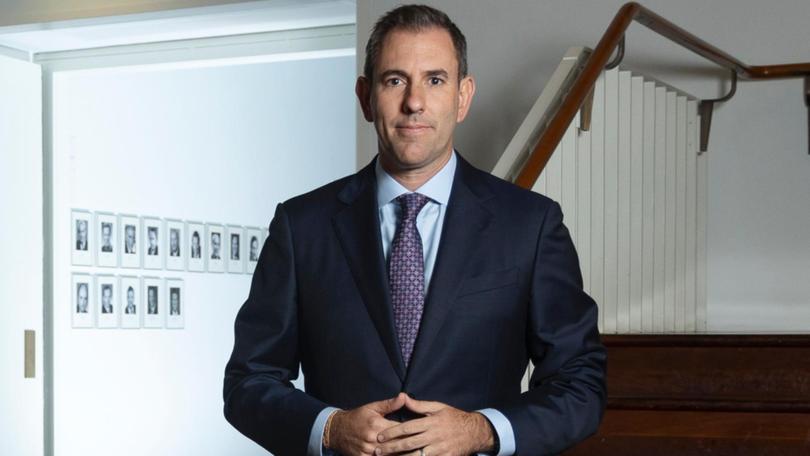Treasurer Jim Chalmers announces biggest overhaul in 50 years of Australia’s merger laws
Rules governing how businesses and companies merge in Australia are ‘not fit for purpose’, Jim Chalmers will declare, paving the way for their biggest overhaul in 50 years.

Rules governing how businesses and companies merge in Australia are “not fit for purpose”, Treasurer Jim Chalmers will declare, paving the way for their biggest overhaul in half a century in a bid to prevent further economic harm.
The Treasurer on Wednesday will detail changes including a requirement for all proposed mergers to be reported to the Australian Competition and Consumer Commission, saying the competition watchdog was insufficiently able to address and prevent anti-competitive mergers.
Dr Chalmers — to speak at the Bannerman Competition Lecture, co-hosted by the ACCC and the Law Council of Australia — will say some mergers can “cause serious economic harm” when “players are not interested in improving profitability by lifting productivity”.
Sign up to The Nightly's newsletters.
Get the first look at the digital newspaper, curated daily stories and breaking headlines delivered to your inbox.
By continuing you agree to our Terms and Privacy Policy.Australia is just one of three advanced economies that does not mandate notification of mergers — meaning businesses can sidestep the ACCC. The voluntary notification process, Dr Chalmers will say, means the ACCC isn’t equipped to detect and act against anti-competitive mergers.
In 2023, more than 1400 mergers were recorded with a value of about $300 billion, he will say, and the ACCC looked at an average of 330 a year.
“We don’t know whether these are the right 330 or the mergers with the greatest potential to cause harm,” the Treasurer will say.
“When the ACCC does assess mergers, the current approach is not transparent for businesses or the community, and clearance can be too slow and cause expensive delays for some businesses as they wait.
“Most mergers have genuine economic benefits . . . but some mergers can cause serious economic harm.”
Under Dr Chalmers’ reforms, the ACCC will target anti-competitive mergers and process faster those that are pro-competition. Most will now be approved within 30 working days if the watchdog is satisfied a merger poses no threat to competition.
But those above a certain, as yet undetermined, monetary threshold and would change market concentration will need to be notified and approved before proceeding. A public register of all mergers and acquisitions notified to the ACCC will also be established.
The changes will come into effect from January 1, 2026. The ACCC has pushed for changes but they will not include its suggestion merging parties demonstrate on the balance of probabilities a merger was unlikely to substantially lessen competition.
ACCC chair Gina Cass-Gottlieb said the changes Dr Chalmers had proposed were significant and would reinforce public confidence in competition laws.
“Higher prices, less choice and less innovation can result from weakened competition,” she said. “Stronger merger laws are critical to ensure anti-competitive mergers do not proceed.”
The Government will also slap fees on mergers, higher for those with more risk. Treasury expects most will attract charges of between $50,000 and $100,000, but small businesses will be exempt.
It has also published refreshed guidelines for the ACCC, covering consumer matters, competition laws and the telecommunications sector.
Dr Chalmers will say the refreshed statement reflects the Government’s priority areas: an “ambitious” competition agenda and “a big focus” on cost of living issues.
Competition meant more and higher quality choices for consumers at fairer prices, Dr Chalmers will say, but he will also emphasise mergers are not all bad.
“Australia’s competitiveness has been declining since the 2000s . . . and the rate of entry of new companies is falling as the average age of businesses rise,” he will say, and add mark-ups businesses apply to their goods and services has increased 2 percentage points in recent decades.
“Across digital marketplaces and new product categories, we’ve seen new ‘winner takes all’ market dynamics and new barriers to consumer choice,” he will say.
“So the next wave of competition needs to come from understanding new anti-competitive dynamics and delivering targeted reforms to address them.”
